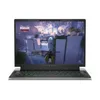RTX 50-series gaming laptops — here's why I think they'll be worth the upgrade
Prepare for next-gen gaming on laptops
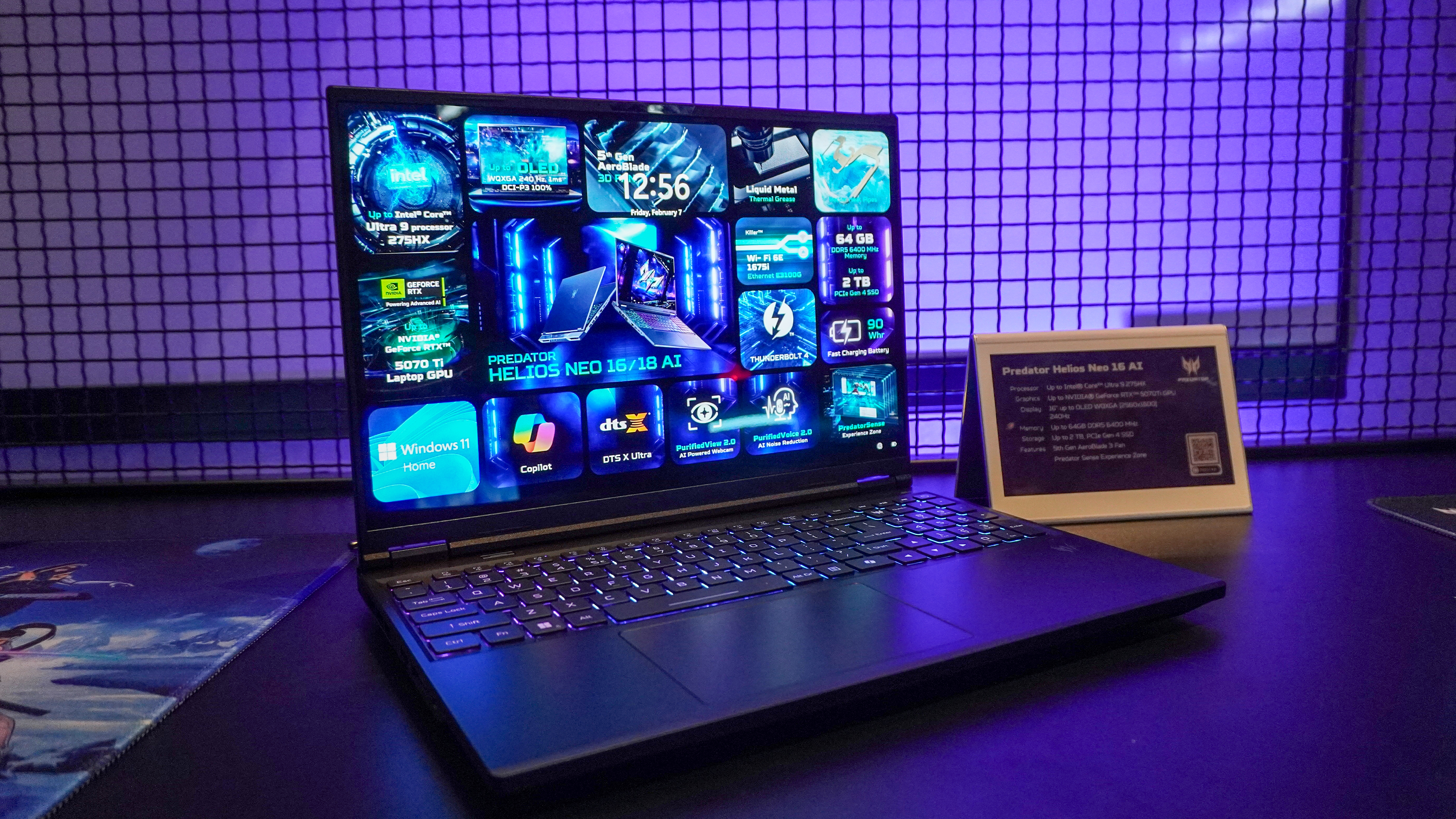
It's a big moment for gaming laptops. It's been a couple of years since we've seen a leap in gaming performance on mobile devices (unless you count the best gaming handhelds), but the time for RTX 50-series laptop GPUs to shine is here.
I've said my piece about how RTX 5070-equipped gaming laptops will be my new gold standard, and that's for good reason. With DLSS 4 and Multi Frame Generation accelerating frame rates by 8x, Nvidia Reflex 2 reducing latency by up to 75% and improved graphical fidelity thanks to RTX Neural Shaders, gaming on next-gen laptops will raise that bar on what can be achieved on a battery-powered mobile system.
But it isn't just RTX 50-series GPUs to look forward to, of course. There are other factors that come into play: Intel Core Ultra 200HX and AMD Fire Range processors for better performance and power efficiency, 4K displays managing 120Hz frame rates or 240Hz OLED screens as standard, Wi-Fi 7 connectivity quadrupling bandwidth and even improved battery life. That's not even counting AMD Ryzen AI Max mobile chips offering 250% improved graphics performance.
That's a whole lot of advancements, and it's hard to imagine the next step in gaming when the best gaming laptops on the market that we've tested already offer superb performance on the fly. So, are the next bunch of RTX 50-series gaming laptops worth the upgrade? And will inevitably discounted RTX 40-series notebooks be a better shout if not? Possibly.
With the RTX 50-series gaming laptop pre-order date confirmed for February 25, I've rounded up all the major improvements we can expect for the future of gaming laptops, including the biggest laptop releases from Asus, MSI, Lenovo and more — all to give you a taste of whether these gaming laptops should be on your radar.
RTX 50-series gaming laptops: what to expect
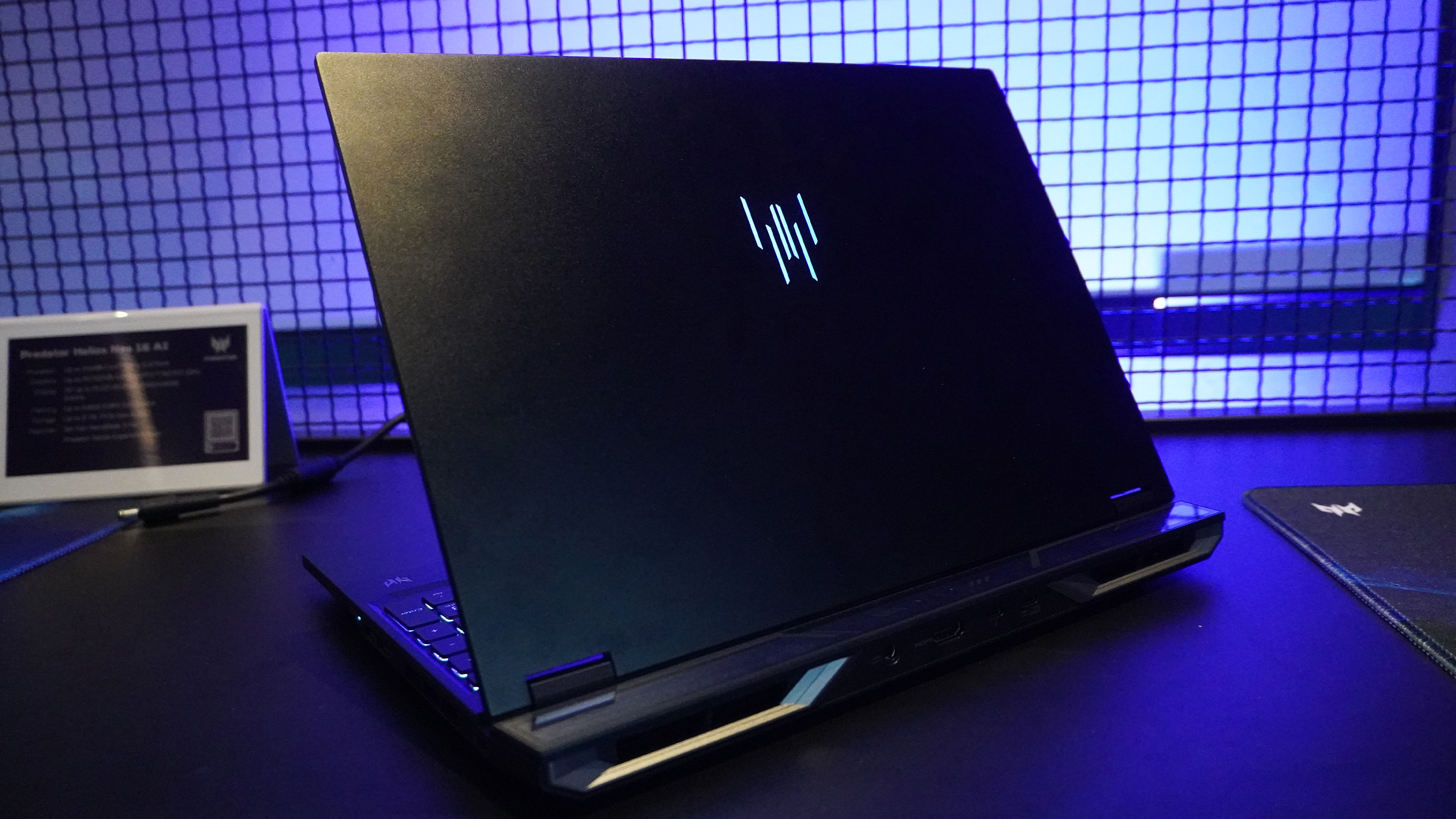
RTX 50-series laptops will arrive this March, with the first wave delivering RTX 5090, RTX 5080, RTX 5070 Ti and RTX 5070 configurations. These are high-end GPUs, and while we've seen glimpses of other variants, including an RTX 5060 mobile GPUs, these heavy-hitters will be the first to make their mark.
As you might expect, they won't come cheap. Prices range from $1,299 for an RTX 5070 to $2,899 for an RTX 5090 gaming laptop.
Sign up to get the BEST of Tom's Guide direct to your inbox.
Get instant access to breaking news, the hottest reviews, great deals and helpful tips.
GPU | Starting price | Graphics memory |
RTX 5090 | $2,899 | 24GB GDDR7 |
RTX 5080 | $2,199 | 16GB GDDR7 |
RTX 5070 Ti | $1,599 | 12GB GDDR7 |
RTX 5070 | $1,299 | 8GB GDDR7 |
To that I say, sure, I'll believe it when I see it. We've already seen listings spotted on Best Buy, with RTX 5090-equipped gaming laptop will cost around $4,000, an RTX 5080 ranging from $2,600 to $3,000 and an RTX 5070 Ti for around or just under $2,000.
Regardless, these laptops aim to impress, and it's much to do with the graphics cards themselves. Looking at the RTX 5090 laptop GPU, you can expect 1,824 AI TOPS (trillions of operations per second), 10,496 CUDA cores (these act like CPU cores), 24GB of GDDR7 VRAM, along with the rest of Nvidia's slate of features (like DLSS 4, boosted ray tracing and more).
Putting this into perspective, a RTX 4090 laptop GPU comes with 686 AI TOPS, 9,728 CUDA cores, 16GB of GDDR6 video memory and DLSS 4 improvements.
GPU | AI TOPS | CUDA Cores | Graphics Memory |
RTX 5090 | 1,824 | 10,496 | 24GB GDDR7 |
RTX 5080 | 1,334 | 7,680 | 16GB GDDR7 |
RTX 5070 Ti | 992 | 5,888 | 12GB GDDR7 |
RTX 5070 | 798 | 4,608 | 8GB GDDR7 |
Put simply, this translates to higher graphics power to play the latest demanding PC games with ease. We've already seen Nvidia’s RTX 5090 desktop GPU in action, offering an average 22% improvement, so I'm expecting similar performance gains in the laptop variant — and even bigger performance spikes in supported PC games.
That's right; some of the best PC games are about to get that much sweeter to play, since they will support DLSS 4 and Multi Frame Generation. Think Black Myth: Wukong, Indiana Jones and the Great Circle, God of War: Ragnarök and plenty more at 4K resolution at 200 frames per second (fps). Further down the line, you can be sure these improvements will be brought to the likes of Doom: The Dark Ages and other big releases.
You bet we're excited by the AI advances in RTX 50-series GPUs, and to bring all these game-enhacing features to a laptop? Even better. But that's not all these next-gen laptops have to offer...
Intel and AMD bringing their A-game
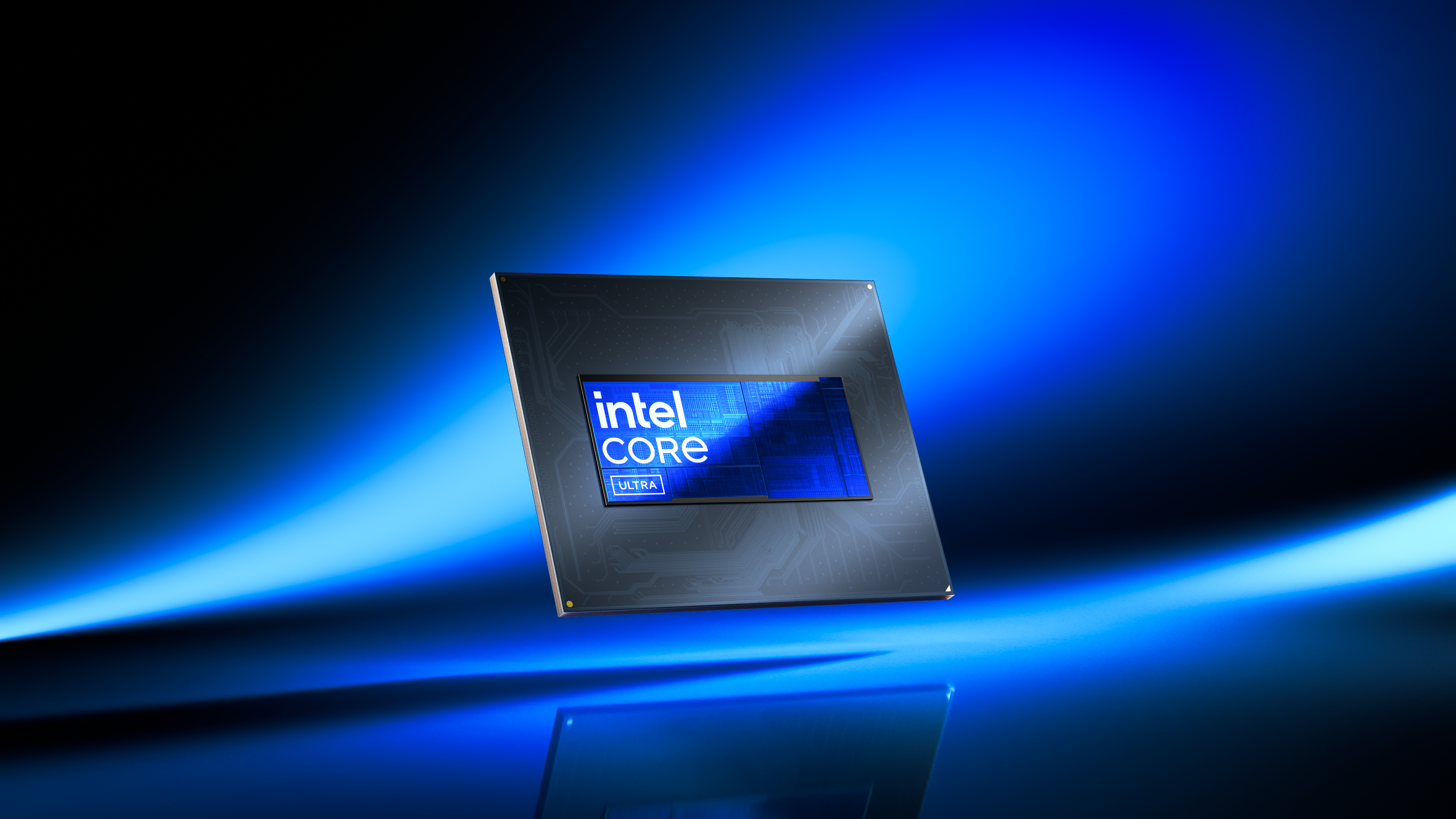
A GPU can't strut its stuff without a capable CPU, and Intel and AMD are here to provide. With Intel Core Ultra 200HX chips and AMD Fire Range Ryzen 9000HX processors aimed at powering the latest gaming laptops, I expect beastly machines are on the horizon.
No, really. In a recent benchmark from PassMark, the Intel Core Ultra 9 275HX CPU skyrocketed to the top of the charts — becoming the best-performing laptop processor to date. And behind this chip? AMD's Ryzen 9 7945HX3D and Ryzen 9 7945HX chips.
These aren't even the highest-powered flagship chips on their way. There's the Intel Core Ultra 9 285HX and AMD Ryzen 9 9955HX3D making their debut on next-gen gaming laptops, too, and they come with some spicy specs.
Processor | Core / Threads | Max speed (gigahertz) | TDP (Watts) |
Intel Core Ultra 9 285HX | 24 / 24 | 5.5 GHz | 55 W |
AMD Ryzen 9 9955HX3D | 16 / 32 | 5.4 GHz | 54 W |
AMD's chips offers Zen 5 architecture with up to 16 cores and 32 threads and game-boosting 3D V-Cache technology, while Intel's processor lineup delivers 24 cores and 24 threads, along with the promise of better power efficiency and “more overclocking features and data-lanes than ever.”
So, this sounds like these CPUs can handle many heavy-duty tasks (and then some) way better than what we've seen in the past year (Intel Lunar Lake didn't fare well in gaming laptops). Pair these with an RTX 50-series mobile GPU, and I'm starting to see upcoming gaming laptops to cook.
Displays that can handle it all
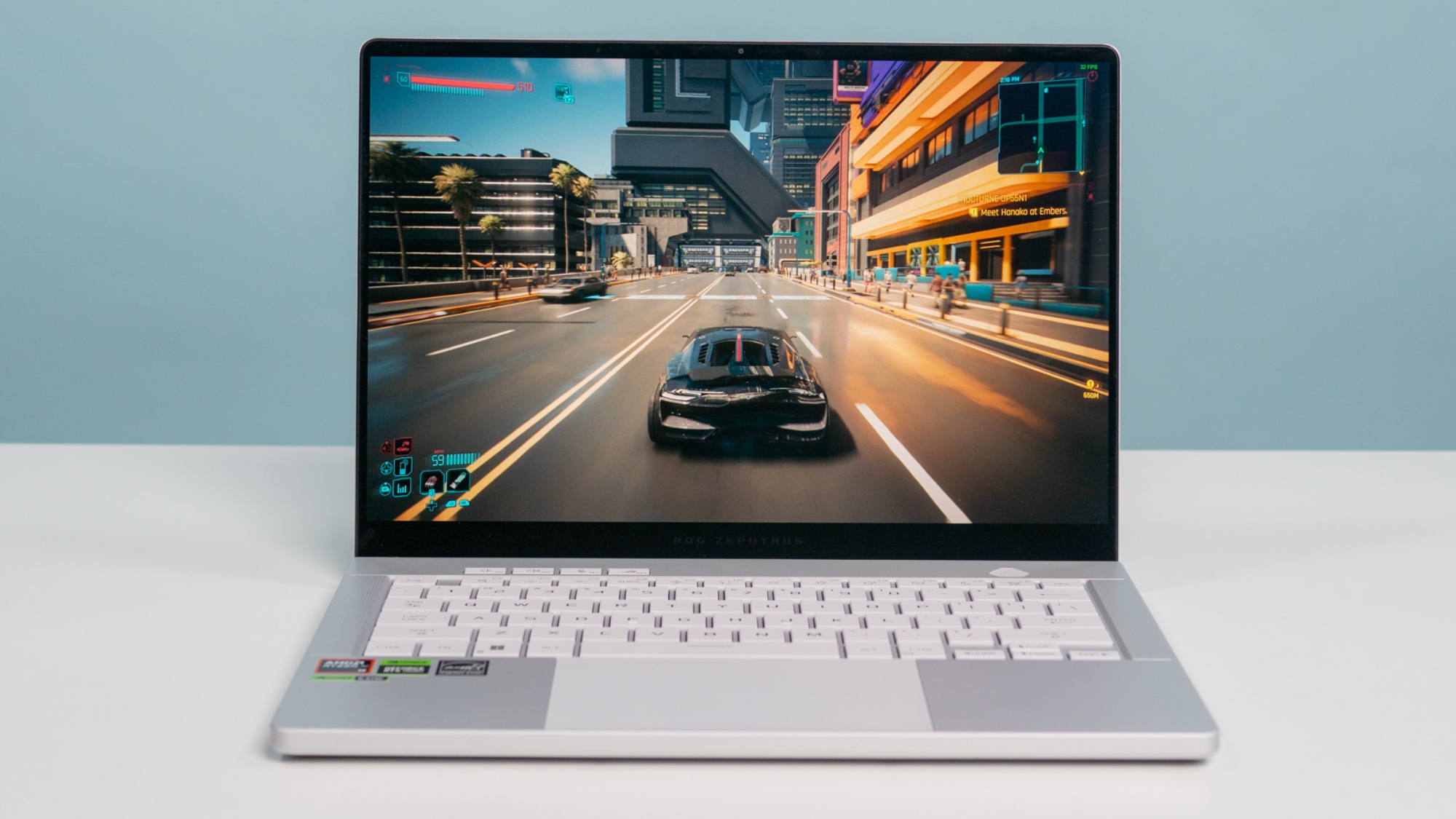
If these RTX 50-series laptops are expected to bring the heat, dishing out high graphical fidelity with super-smooth frame rates, you best believe there's a display putting it all into action.
We've seen some stellar panels already, including the Alienware m18 R2's 18-inch (2560 x 1600) screen with a 165Hz refresh rate and the Asus ROG Zephyrus G14's 14-inch (2880 x 1800) OLED display sporting 120Hz and a 0.2ms response rate, but next-gen gaming laptops appear to offer more as standard.
Take the upcoming Acer Predator Helios Neo 16 AI as an example. The 16-inch model features a WQXGA (2560 x 1600) OLED display with a 240Hz refresh rate, while the 18-inch configuration delivers a WQXGA (2560 x 1600) Mini-LED screen with 250Hz. Now that's a laptop I want to see play some high-end games.
There's also the upcoming MSI Titan 18 HX, equipped with an 18-inch 4K Mini-LED display with a 120Hz refresh rate. 4K at 120Hz on a Mini-LED laptop? It may not work be for competitive multiplayer titles, but it will sure make those graphically demanding single-player PC games shine (there's also a 4K IPS panel with up to 220Hz, too).
Of course, there will be a greater variety of displays on show, but to get to the point: next-gen laptops will have displays that will match the RTX 50-series power onboard. Just like this Asus ROG Strix Scar 18, featuring an 18-inch 2.5K (2560 x 1600) Mini-LED panel with a 240Hz refresh rate.
RTX 50-series gaming laptops coming in 2025
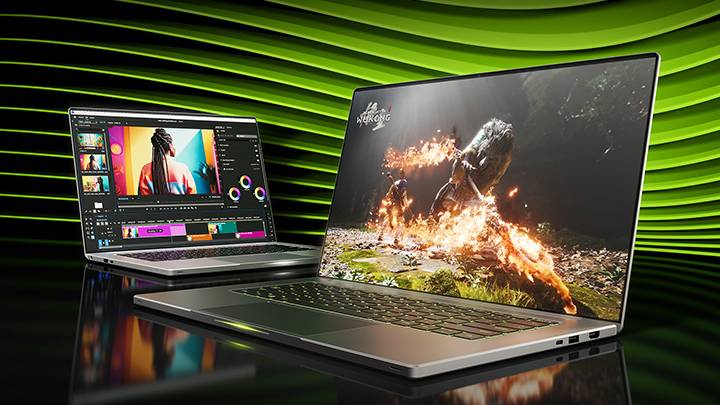
There are many RTX 50-series gaming laptops in the works, ranging from high-end RTX 5090 configurations to mid-range RTX 5070 beasts. However, a few have already piqued my interest, and they sport all the upgrades
Here's a look at my four most-anticipated RTX 50-series gaming laptops from Acer, Asus, MSI and Lenovo — sporting RTX 5090, RTX 5080 and RTX 5070 Ti GPUs.
Laptop | CPU | GPU | RAM / Storage | Display |
Acer Predator Helios Neo 16 AI | Up to Intel Ultra 9 275HX | Up to Nvidia RTX 5070 Ti | Up to 64GB DDR5 / Up to 2TB | 18-inch WQXGA (2560 x 1600) Mini-LED, 250 Hz |
Asus ROG Zephyrus G14 (2025) | Up to AMD Ryzen AI 9 HX 370 | Up to Nvidia RTX 5080 | Up to 64GB DDR5 / 2TB | 14-inch3K (2880 x 1800) OLED, 120Hz |
MSI Titan 18 HX | Intel Core Ultra 9 285HX | Up to Nvidia RTX 5090 | Up to 96GB DDR5 / up to 4TB | 18-inch UHD+ (3840 x 2400) IPS, 220Hz |
Lenovo Legion Pro 7i (2025) | Up to Up to Intel Core Ultra 9 275HX | Up to Nvidia RTX 5090 | Up to 64GB DDR5 / up to 2TB | 16-inch WQXGA (2560 x 1600) OLED, 240Hz |
See what all my excitement is about? It's hard to see on paper, but considering these laptops have well-established predecessors that are now beefed up with the latest specs, including a range of RTX 50-series GPUs, there's a lot to look forward to.
Will they be worth the upgrade?
Truthfully, there's no way of telling if RTX 50-series laptops will be a worthy upgrade from the gaming laptops we see today — not until we get our hands on them, anyway. Those who already picked up an RTX 40-series notebook may not see the huge performance gains they want, especially for the price these next-gen gaming laptops are set to be at.
But am I excited to see what the latest in laptop gaming can push out? You betcha. From the clear performance boosts seen on RTX 50-series GPUs, along with Intel and AMD's latest CPUs, I can imagine cranking up settings to max in any PC game I throw at them and hardly see them sweat.
One thing's for sure: RTX 50-series gaming laptops are about to set a new standard for gaming on the go, and if you're on the market looking for gaming laptop upgrade like myself, you'll be spolit for choice this year.
More from Tom's Guide
- I'm so excited by the AI advances of the RTX 5090 I'm ditching my 4090 — here's why
- I just built an RTX 5090 gaming PC — here’s what I used and how to build your own
- Nvidia is making it easier for fans to buy an RTX 5090 and RTX 5080 — here's how

Darragh is Tom’s Guide’s Computing Editor and is fascinated by all things bizarre in tech. His work can be seen in Laptop Mag, Mashable, Android Police, Shortlist Dubai, Proton, theBit.nz, ReviewsFire and more. When he's not checking out the latest devices and all things computing, he can be found going for dreaded long runs, watching terrible shark movies and trying to find time to game
You must confirm your public display name before commenting
Please logout and then login again, you will then be prompted to enter your display name.


